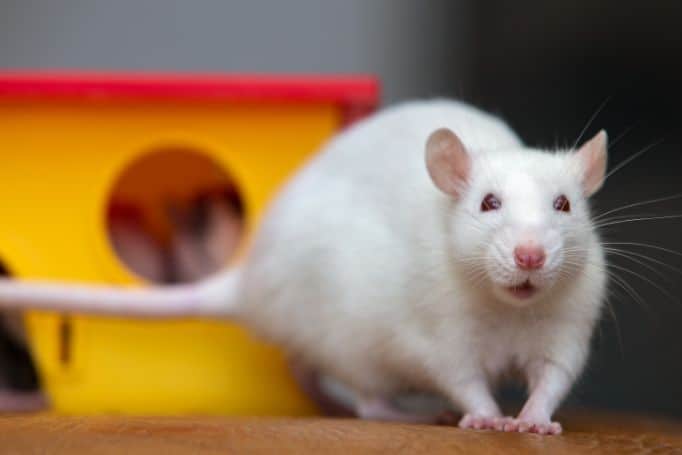Rats are fascinating creatures that have been studied for centuries. They have been used in experiments to better understand human physiology, and their unique characteristics have made them popular as pets.
One question that many people have is whether or not rats can fart. This may seem like a silly question, but it’s worth exploring.

What is flatulence?
Before we dive into the topic of rat farts, let’s first define what flatulence is. Flatulence is the passing of gas from the digestive system out of the rectum. This gas is made up of nitrogen, oxygen, carbon dioxide, methane, and other trace gases. It is a natural part of the digestive process and is usually not a cause for concern.
Why do we care if rats fart?
While the topic of rat farts may seem trivial, it is actually quite important for a few reasons. First, it helps us better understand the biology of rats. Second, it can help us identify health problems in rats. Finally, it’s just plain interesting!
Do Rats Fart? The Facts
Scientific studies and findings
There have been several scientific studies conducted to determine whether or not rats fart. One study published in the Journal of Comparative Physiology found that rats do indeed pass gas.
The researchers used a gas analyzer to measure the amount of methane in the air around the rats and found that they produced significant amounts of the gas.
Common observations of rat owners
In addition to scientific studies, many rat owners have observed their pets farting. They report hearing a soft hissing noise and smelling a foul odor, much like human farts.
While anecdotal evidence is not as reliable as scientific studies, it does suggest that rats do indeed fart.
Comparison to other animals
Rats are not the only animals that fart. In fact, most animals pass gas to some extent. This includes cows, dogs, cats, and even insects like termites.
However, the frequency and volume of gas produced varies between species. As you’d imagine, larger animals produce a lot more gas than smaller ones.
What Causes Rats to Fart?
Diet and digestion
Like humans, rats produce gas as a natural byproduct of digestion. The foods they eat can affect the amount and odor of gas produced.
Foods high in fiber, like fruits and vegetables, tend to produce more gas than processed foods.
Intestinal bacteria
The bacteria in the digestive system of rats also play a role in flatulence. Certain types of bacteria produce more gas than others, and an imbalance in the gut microbiome can lead to excessive gas production.
Health conditions that affect flatulence
In some cases, excessive flatulence can be a sign of a health problem in rats. Intestinal infections, food intolerances, and other digestive issues can all cause increased gas production.
If you notice a sudden change in your rat’s flatulence or other digestive symptoms, it’s important to see a veterinarian.
Myths and Misconceptions
Can rats fart so loudly that they startle humans?
There is no evidence to suggest that rat farts are loud enough to startle humans. While they may produce a hissing sound, it is unlikely to be loud enough to cause a reaction.
Are rat farts dangerous to humans?
Rat farts are not dangerous to humans. While they may produce an unpleasant odor, they are not toxic or harmful in any way.
Are rat farts a sign of a health problem?
As mentioned earlier, excessive flatulence can be a sign of a health problem in rats. However, occasional gas production is normal and not a cause for concern.
Conclusion
In summary, rats do indeed fart, and it is a natural part of their digestive process. The amount and odor of gas produced can be affected by diet, gut bacteria, and health conditions. Rat farts are not dangerous to humans and are not a cause for concern unless they are excessive or accompanied by other digestive symptoms.
While the topic of rat farts may seem trivial, it is actually quite interesting from a scientific standpoint. Understanding the biology of rats can help us better care for them as pets, and it’s always fun to learn something new about these fascinating creatures.
- How Long Do American Eskimo Dogs Live? Important Factors and Care Tips - September 29, 2023
- Do American Bulldogs Need Grooming? Essential Tips and Care Guidelines - September 29, 2023
- Do Bengal Cats Enjoy Playing? Essential Tips for Keeping Them Active - September 29, 2023